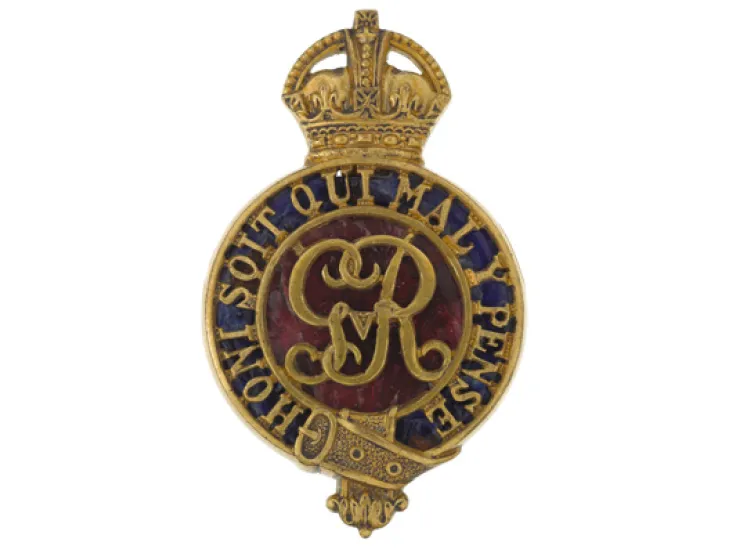Explore more from Regiments and Corps
The Blues and Royals (Royal Horse Guards and 1st Dragoons)
2 minute read
Origins
This unit is one of the two Household Cavalry regiments in the British Army, the other being The Life Guards. It was formed in 1969 by amalgamating The Royal Horse Guards with The Royal Dragoons (1st Dragoons), both of which had origins dating back to the mid-17th century.
Although famous for its ceremonial duties, the new unit saw much active service during the 1970s and 1980s as a reconnaissance unit in West Germany with the British Army of the Rhine. Squadrons from the regiment also carried out several tours of Northern Ireland and served on Cyprus with United Nations forces.
In 1982, it sent detachments to the Falklands War, where they supported The Parachute Regiment in the Battle of Wireless Ridge.
Household Cavalry
In 1992, the two Household Cavalry units’ ceremonial troops were united into the Household Cavalry Mounted Regiment (HCMR), and their operational troops into the Household Cavalry Regiment (HCR). The Blues and Royals contribute two squadrons to the HCR and one squadron to the HCMR. They are based in Windsor and central London respectively.
Since 1992, squadrons of The Blues and Royals have served with the HCR in Bosnia in 1994-95 and Kosovo in 1999. Members of The Blues and Royals also regularly deployed to Iraq (2003-11) and Afghanistan (2001-14).
Identity
Although they serve together in the HCR, both The Life Guards and The Blues and Royals retain their own separate identities, colonels, traditions and uniforms.
For The Blues and Royals, these traditions include calling its newest officers cornets, not second lieutenants. The regiment also wears a French eagle as its sleeve badge, a tradition inherited from the 1st Dragoons, who captured one at Waterloo (1815).
Regimental museums
The National Army Museum works with a network of Regimental and Corps Museums across the UK to help preserve and share the history and traditions of the Army and its soldiers.
Discover more about The Blues and Royals (Royal Horse Guards and 1st Dragoons) by visiting The Household Cavalry Museum in London.









